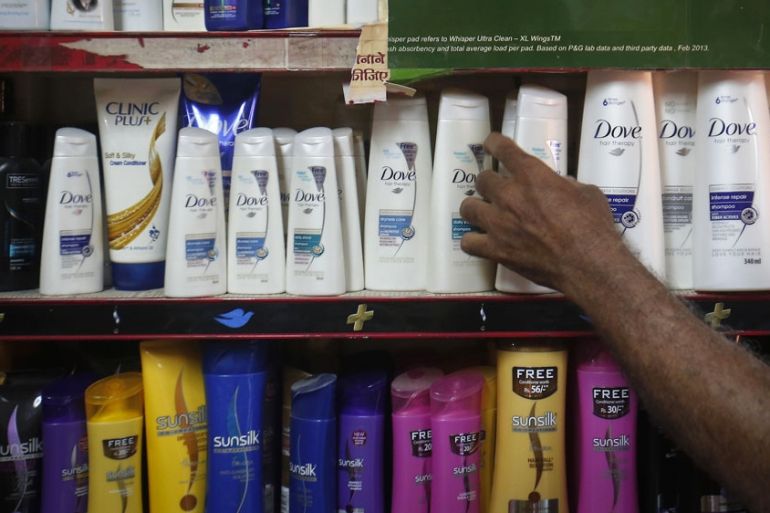Unilever pledges to slash plastic use by 2025
The consumer goods giant says it produces some 700,000 metric tonnes of plastic packaging annually.

Consumer products giant Unilever, whose brands include Dove soaps and Lipton teas, has said it aims to halve its use of non-recycled plastics by 2025.
CEO Alan Jope said on Monday that the plan to slash the use of so-called virgin plastics will require a “fundamental rethink” in its packaging policies.
Keep reading
list of 4 itemsEvacuation orders issued as wildfire grows near Canada’s Alberta oil patch
Energy summit seeks to curb cooking habits that kill millions every year
Thousands evacuate as wildfire grows ‘dramatically’ in western Canada
The company aims to achieve the goal by reducing its use of all plastics by 100,000 metric tonnes and using more recycled plastic.
Unilever previously pledged to make all its plastic packaging reusable, recyclable or compostable by 2025 and to use at least 25 percent recycled plastic in packaging by that year.
The company also said on Monday it aims to collect and process more plastic packaging than it sells by 2025.
“Plastic has its place, but that place is not in the environment,” Jope said. “We can only eliminate plastic waste by acting fast and taking radical action at all points in the plastic cycle.”
He said meeting the new targets will require “new and innovative packaging materials” and a rapid increase in packaging that can be reused or refilled.
Here are our ambitious new commitments for a waste-free world: by 2025, we will reduce our use of virgin #plastic in our packaging by 50% and help collect and process more plastic packaging than we sell. #CircularEconomy https://t.co/IS7VyyvTlp pic.twitter.com/T0dLcC90ps
— Unilever #StaySafe (@Unilever) October 6, 2019
Unilever has already started selling products including toothbrushes made of bamboo, and cardboard deodorant sticks and refillable toothpaste tablets.
Even so, the Anglo-Dutch company says it produces some 700,000 metric tonnes of plastic packaging annually.
Elvira Jimenez, a plastics campaigner with Greenpeace, welcomed the announcement, “in the sense that they are the first ones that are actually acknowledging that there has to be a reduction.”
However, she said the environmental organisation would like to see Unilever shift its focus even further toward packaging and products that can be reused or refilled.
Experts say that some 9 million tonnes of plastic waste, including plastic bottles, bags, toys and other items, flow annually into the world’s oceans.